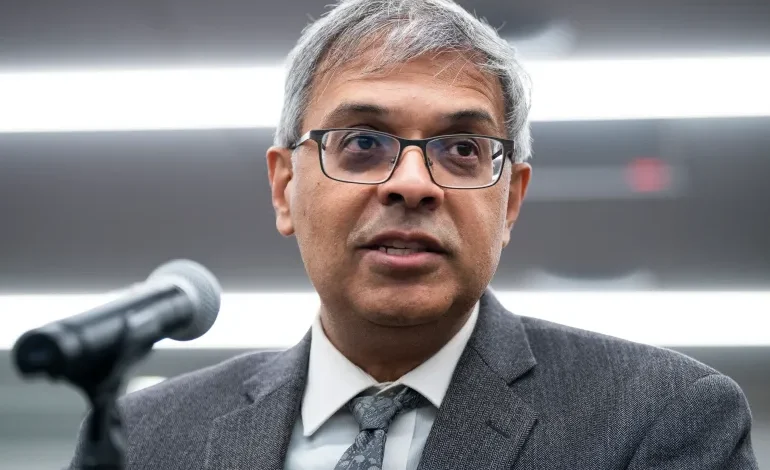Who is Jay Bhattacharya, Trump’s anti-lockdown pick to head the NIH?

US President-elect Donald Trump has nominated Dr Jay Bhattacharya, who opposed COVID-19 lockdowns, to run the National Institutes of Health (NIH), the primary agency in the United States responsible for public health research.
Bhattacharya is known for his criticism of the Biden administration’s handling of the COVID pandemic after it took power in January 2021.
Who is Jay Bhattacharya?
Bhattacharya is a physician, a professor of health policy at Stanford University and a research associate at the National Bureau of Economic Research at Stanford.
According to his resume, Bhattacharya completed his medical degree from Stanford in 1997 and received his doctorate in the economics of healthcare in 2000 from the Stanford University Department of Economics.
In 2020 when the worldwide COVID-19 pandemic took hold, Bhattacharya advocated against complete lockdowns, arguing that they have detrimental impacts on physical and mental health. He co-authored an open letter, the Great Barrington Declaration, detailing this. While his take on lockdowns drew criticism back then and continues to be criticised now, some of his critics are reassessing their views.One of these former critics is Dr Francis Collins, a former NIH director who called Bhattacharya and his co-authors “fringe epidemiologists” in 2020. However, in December 2023, Collins told New York-based nonprofit Braver Angels that back in 2020, he and his colleagues were “narrowly focused” on saving lives.
Although he did not directly mention Bhattacharya or the declaration, he stated: “You attach infinite value to stopping the disease and saving a life. You attach zero value to whether this actually totally disrupts people’s lives, ruins the economy and has many kids kept out of school in a way that they never might quite recover from.”
Experts say that this was precisely what Bhattacharya was talking about. Dr Laith Jamal Abu-Raddad, a professor of infectious disease epidemiology at Weill Cornell Medicine in Qatar, told Al Jazeera: “Regarding COVID-19 specifically, health policymakers erred on the side of caution, given the limited and evolving understanding of the virus.
“In retrospect, some restrictions or their intensity were unnecessary, as argued by Jay and colleagues.”
In 2022, independent journalist Bari Weiss cited an investigation based on internal company documents from the social media platform X (known as Twitter at the time), that showed that Bhattacharya’s account was one of several that had been “secretly” blacklisted. This occurred before Elon Musk acquired the platform.
When Musk acquired X in 2022, he invited Bhattacharya to talk about how his voice had been restricted by the platform.
Bhattacharya was also a plaintiff in a Supreme Court case which alleged that President Joe Biden’s administration was improperly suppressing conservative views on social media regarding topics including COVID-19. In June this year, however, the court sided with the Biden administration.
Bhattacharya’s nomination as NIH head will have to be approved by the Senate.










